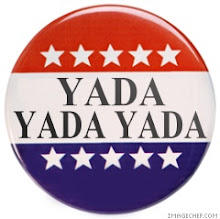exigent \EK-suh-juhnt\, adjective:1. Requiring immediate aid or action; pressing; critical.2. Requiring much effort or expense; demanding; exacting.
George Bush asserted another self-granted authority when he signed a postal reform bill into law on December 20th by issuing yet another "signing statement" that declared his right to open people's mail without a warrant. Typical of White House interpretations of Presidential pronouncements, spokeswoman Emily Lawrimore denied Bush was claiming any new authority and asserted that “the Constitution does not require warrants for reasonable searches” under what Bush calls “exigent circumstances.”
One can concoct a scenario wherein such things may be advisable, but of course the definition of exigency is here determined by George W. Bush and not by the law or by the courts whose job it is to do such things. All Bush has to do is cite 9/11 and anything he can relate to it no matter how speciously, can be justified.
It’s not a surprise, given Bush’s attitudes toward listening to phone calls, reading e-mail and his endless appeals to fear to justify outright defiance of law. It’s another giant step toward a government of Men – or perhaps more specifically one man, rather than of laws.
Certainly one can stop wondering whether the Republican defeat at the polls just two months ago taught the President anything. He seems to be staying that same course and damn the constitution, damn the Generals, damn the will of the people – he will stay the course.
Raw Story has the nauseating details.
Thursday, January 04, 2007
Subscribe to:
Post Comments (Atom)

3 comments:
The sad part is that I am not even surprised by such dictatorial stances anymore.
Nor am I. With only two years to go, I am not sure what the object of the continued assumption of "emergency" powers is if he isn't aiming at becoming a "permanent president."
He can't spell exigent, and there is no chance he understands the definition.
Post a Comment